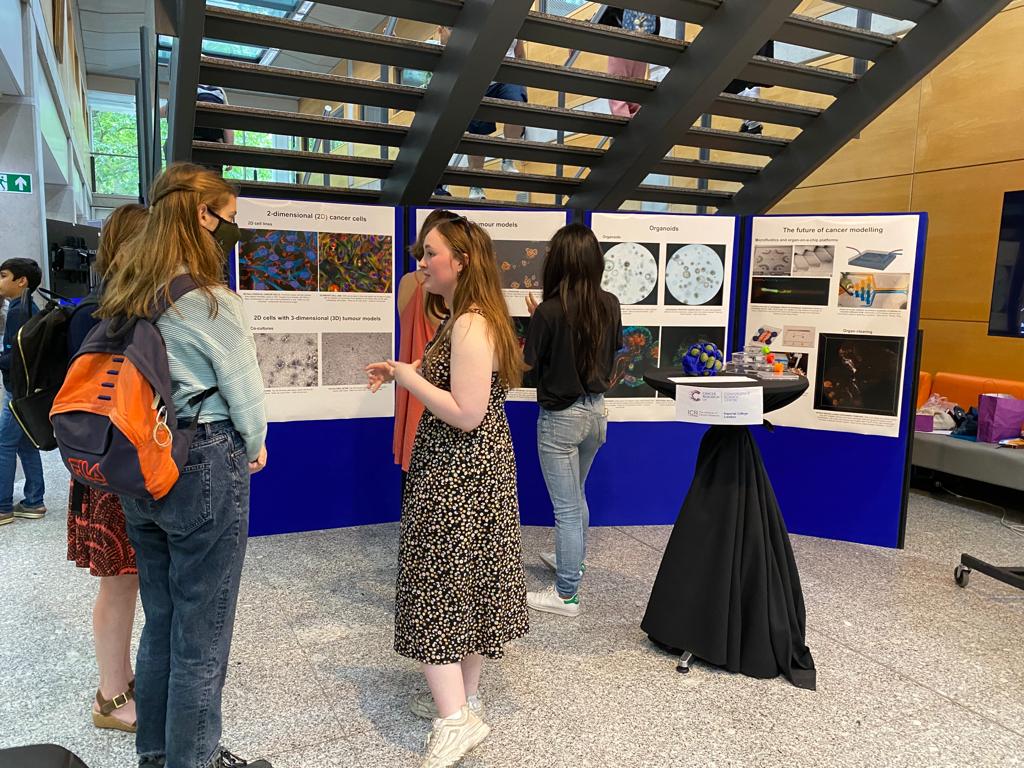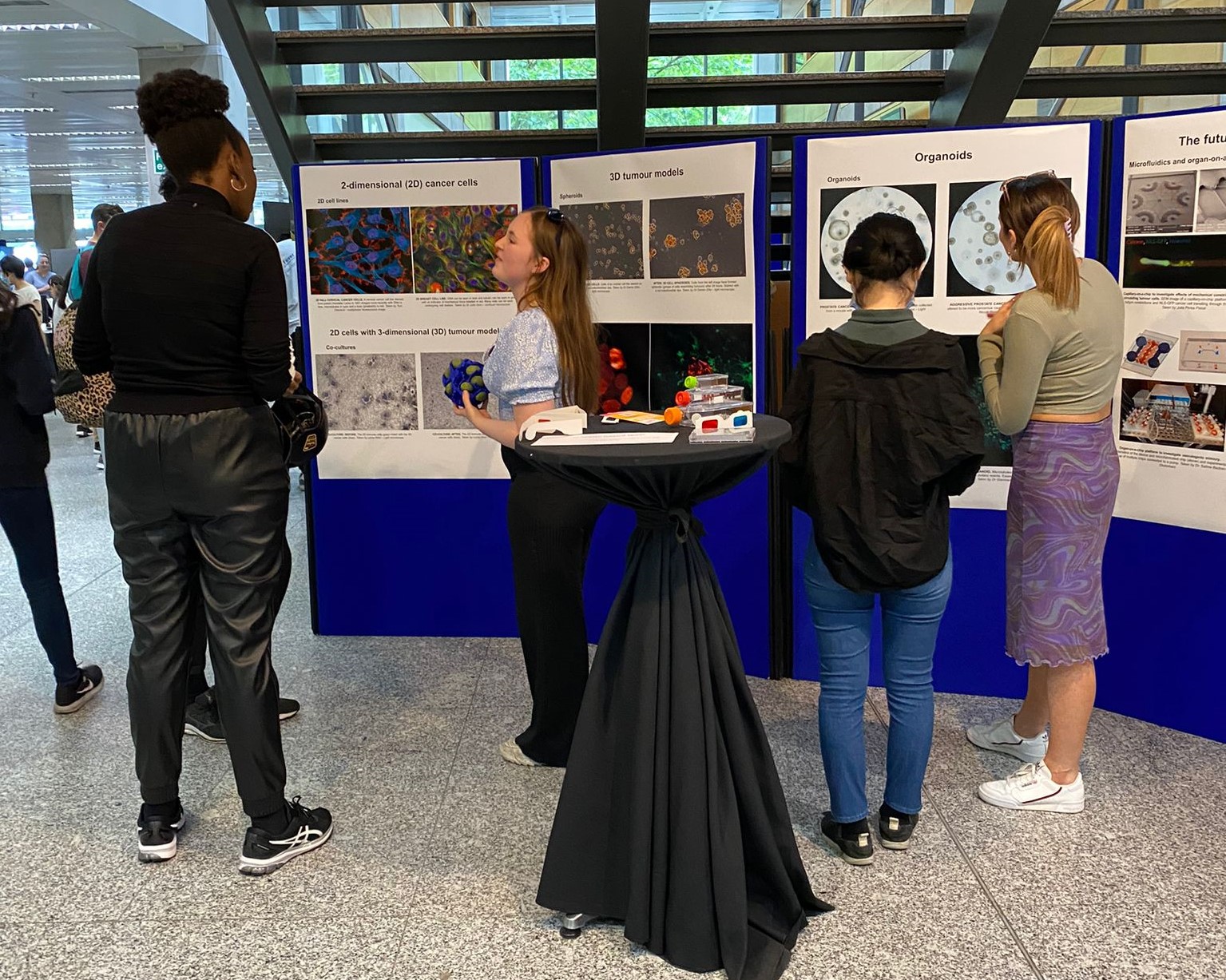
Personalised Medicine in Cancer
Cancer is not one disease. Because tumours originate from our body and tissues, they carry within them part of our individuality. They are made from us. They have our genes. Although corrupted, cancer cells are part of the self, an enemy within. From this realisation arises one of the greatest challenges of cancer treatment: Cancer is not one disease; each cancer has its own story to tell. The individual make-up of tumours is largely responsible for a treatment to successfully work for one patient but fail for another. Considering that most cancer therapies have severe adverse effects, an emotional and financial burden, and the fact that treating a cancer is a race against the clock, it is heart-breaking to unknowingly opt for a treatment that was doomed to fail. But what if we could know in advance? What if we could test the different treatment options without affecting the patient? Beyond the fact that we are all different to some extent, deeper healthcare inequalities must be addressed, regarding gender and ethnic background-linked variability in response to treatments. What if we could understand better what makes us different from one another? This is the purpose of personalised medicine.
A Convergence Approach to Cancer
It is possible to grow a patient tumour outside of their body and study it in the lab. This is not science-fiction, but a technological revolution. One fundamental characteristic of cancer is its insatiability to grow in disregard of the rules governing our body. This is what makes of cancer a life-threatening condition. We can use it here at our advantage. By taking a sample of a patient’s tumour, we can grow it in the lab - under the right conditions - in the form of hundreds of mini tumours called cancer organoids. From there, we could imagine running multitudes of tests to understand what the tumour is made of, establish how much of a risk it poses to the patient and, most importantly, what treatment option(s) might cure them. All of this can be achieved without having to test anything on the patient directly, saving them time, anxiety and suffering from adverse effects. Of course, this is easier said than done. Over the past decades, tremendous technological advances have allowed cancer researchers to successfully grow organoids in labs, but many challenges remain. Cancer is not one disease. Some types of cancers are easy to grow in a lab, others very difficult. Beyond the issue of growth, the technologies used to observe, measure and probe organoid hidden secrets are still in their infancy, not something you would see available in NHS Cancer Services yet. To bridge this gap, scientists at Imperial College London and The Institute of Cancer Research use the convergence approach to be the architects of future technologies in personalised cancer medicine. This approach is based on the combination of strength from biologists, clinicians, engineers and physicists, chemists and mathematicians working together to tackle a compelling problem and fast-track innovation. We believe that convergence will yield formidable progress in the clinical use of cancer organoids in the years to come and the Centre’s scientists were inspired to share their enthusiasm for this vision with the public at this year’s Great Exhibition Road Festival.
Showcasing Cancer Organoid Research at The Great Exhibition Road Festival
“Our stall was titled “Visualising the Revolution: Leaps and Bounds in Cancer Research. We exhibited the exciting progress made in cancer research models though eye-catching microscopy, images, videos, a 3D-printed tumour model.” Alexia Martin, PhD student.
Every year, The Great Exhibition Road Festival attracts thousands of visitors in South Kensington (London) to explore sciences and arts through hands-on workshops, talks, performances and installations for all ages. This year, five of our PhD students – Alexia Martin, Elizabeth Flittner, Mi Lim, Julia Perea Paizal and Federica Talamona - were there to showcase the past and future of organoid research to a wide range of inquisitive onlookers, professionals, and science aficionados.


“Having the opportunity to explain what we do in the lab to such a diverse public and experiencing such an engagement from their side was very rewarding. From adapting the story to the youngest and inspiring them to follow the path of research, to talking to people who sadly had seen this disease from close, this experience was a reminder to myself that, ultimately, our research is intended to improve patients’ lives.” Julia Perea Paizal, PhD student.
Over the two-days festival, they discussed their knowledge and passion for their research. They answered questions from the public, highlighting the history of patient-derived research models from cell lines to organoids, their hopes for the future, as well as the increasing ethical challenges and the necessity for building trust within the communities. Cancer research would not be feasible without public support. By assisting our research, cancer patients make discoveries possible, and, in recognition of their invaluable contribution, we must always keep the patient well-being at the centre of our innovations.
“I was positively surprised to see how many people engaged with us and showed interest in our work. I hope we managed to give people a sense of trust related to the research that is being carried out at our institutions and maybe inspire some younger minds to undertake a scientific carrier themselves.” Federica Talamona, PhD student.
Public Engagement events are also an opportunity for our young scientists to reaffirm their ambition to make a difference in people’s lives.
“Speaking to so many people with personal experiences of cancer gave me perspective and renewed motivation when going back into the lab.” Alexia Martin, PhD student.
“I was inspired in return. People’s interest and appreciation of our work made me feel more motivated to pursue my own research moving forward.” Federica Talamona, PhD student.
“My first year as a cancer research PhD student has been full of ups and downs but taking part in The Great Exhibition Road Festival has put my research into perspective. When an experiment doesn’t work, I take a step back and remind myself that our goal is to help those affected by cancer.” Elizabeth Flittner, PhD student.
Our PhD students are supported through the Convergence Science Centre training programmes funded by Cancer Research UK. For more information about our training see here.
The CRUK Convergence Science Centre is committed to involve patients and the public in our research. For more information about our public and patient involvement see here.